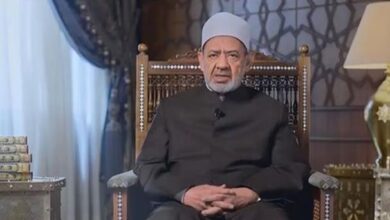
The People's Assembly’s Proposals and Complaints Committee has rejected a draft law proposing the cancellation of khula divorces, state-run news agency MENA said Sunday.
The bill, which had been proposed by independent MP Mohamed al-Omda, the deputy head of the committee, would outlaw the Islamic practice of khula, which grants a woman the right to get a divorce in court if she pays her husband back their marriage settlement.
Omda said last month while proposing his controversial draft law that Islamic Sharia has been threatened since the establishment of the National Council for Women, alleging that the council is trying to ruin the traditions of Muslim women. He added that giving women the right to divorce without their husbands’ consent contradicts Sharia.
During the committee meeting on Sunday, a representative from the Justice Ministry and Al-Azhar Islamic Research Academy rejected Omda’s draft law, saying that khula is a well-known practice in Islam and cannot be canceled, according to MENA.
In the bill’s explanatory memorandum, Omda alleged that women’s right to divorce through courts was granted to satisfy the National Council for Women, which was chaired by former First Lady Suzanne Mubarak, allegedly to save women from persecution in “Middle Eastern countries.”
Islamic Sharia has been under siege since then, he claimed.
Omda claimed that the National Council for Women and other women’s associations wanted to let women rid themselves of marital life according to their individualistic will, without the slightest regard for family or society.
He said the law gave women the right to divorce in a court without the terms required by khula in Islamic law.
Abdallah al-Naggar, a member of the Islamic Research Academy and an Al-Azhar representative, said he was a member of the committee that had drafted this article in the Personal Status Law, and that former First Lady Suzanne Mubarak did not interfere in the matter.
Naggar went on to say that khula is legal according to the Quran, Sunnah and scholarly consensus, and that it is in harmony with the sublime Islamic purpose that no women should be forced to live with a man against her will.
He added that if a woman wishes to marry another man then this is even more reason for her husband to let her out of the marriage.
He said Al-Azhar will wholeheartedly adhere to the khula article. Meanwhile a representative of the Justice Ministry, Omar al-Sherif, said that whether or not khula was used in the past, it is an Islamic right that cannot be canceled.
In 2000, after headed debate, Parliament issued a law on the regulation of litigation procedures in personal status matters. The law applied Sharia, in which the woman can obtain a divorce if she returns the financial settlement her husband paid her when they married.
The law is popularly known as the “khula law” and it means that if a husband refuses to divorce his wife, the woman has the right to petition a judge in order to obtain a divorce.
This law applies only to Muslim women, as Christian women have a separate personal status law.
Obtaining the right to divorce was a main focus of the Egyptian feminist movement in the 20th century. Previously, a woman could ask a judge for a divorce, but in most cases the judge would not grant the request.
Women’s rights activists say that even after the issuance of the khula law, administrative and legal obstacles continued to hinder women's ability to divorce their husbands.



